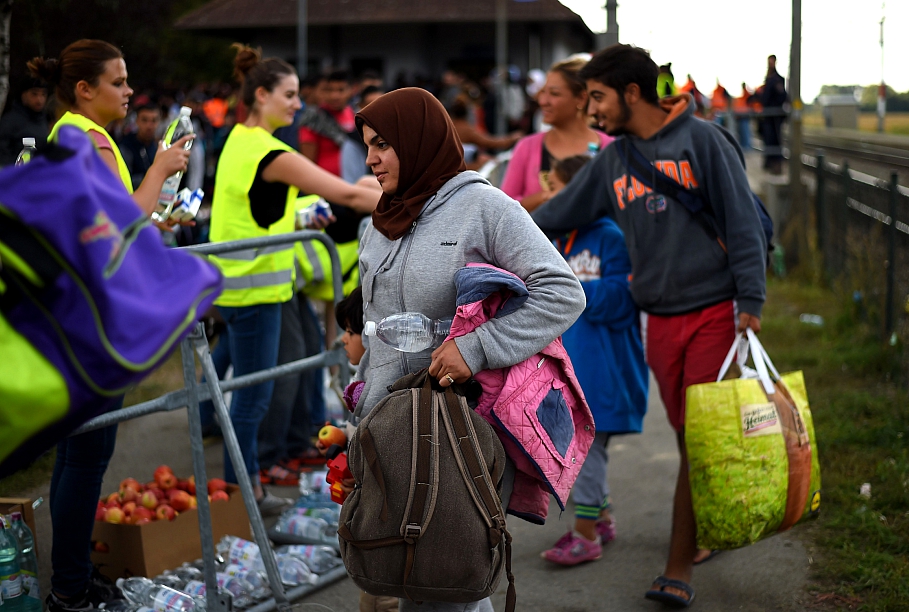The three-party ruling coalition failed to agree on admission of an additional 526 refugees under the new EU scheme for relocation of refugees proposed by European Commission President Jean Claude Juncker, Latvian Prime Minister Laimdota Straujuma told the press after an extraordinary meeting of the parties on Friday morning.
She said the discussion among the coalition partners had been ”very serious”.
”Apparently Interior Minister Rihards Kozlovskis will go [to the meeting of the EU Justice and Home Affairs Council] with the same position that Latvia had before,” the prime minister said.
On one thing all three ruling parties had agreed, though. "All three ruling coalition parties are for a clear mechanism and directions for the activities to deal with the migration problem in the EU,” Straujuma said.
The ruling coalition will keep up the efforts to reach an agreement, and the prime minister is scheduled to meet with Juncker on Sunday before the meeting of the EU ambassadors.
"Latvia is the only country which has not agreed to the proposed numbers. I am going to have a conversation with Mr. Juncker, and we will be looking for a solution acceptable to Latvia,” Straujuma said.
Augusts Brigmanis, the head of the parliamentary faction of the Greens and Farmers Union (ZZS), said that his party supported acceptance of 250 refugees in accordance with the earlier decision by the Latvian government but was against admittance of any additional refugees.
The ruling National Alliance also objects to Juncker’s proposals. Edvins Snore, a board member of the National Alliance, said that Latvia should be given a special status as a result of forced migration during the Soviet era.
A statement released by the party after the meeting said "we require, in view of the specific circumstances of Latvian migration, that Latvia be released from its obligation to take in new asylum seekers from other EU countries," a view unlikely to be greeted with much sympathy in other European capitals.
Meanwhile at the Latvian parliament or Saeima, the parliamentary committee on European affairs didn't even discuss a national position for the meeting of the EU Justice and Home Affairs (JHA) Council planned on September 14, removing the item from the meeting’s agenda.
Interior Minister Rihards Kozlovskis explained to the lawmakers that at the JHA Council meeting he would say that Latvia did not have a national position. He said the EU ministers were not going to make any decisions at the meeting next Monday and would only be exchanging opinions.
"We [Latvia] have no position, but no voting has been scheduled [at the JHA Council meeting on Sept. 14],” the minister said.
The Latvian government agreed earlier to voluntarily accept 250 refugees, but, in line with the new EU refugee relocation scheme presented by Juncker on September 9, Latvia might have to admit additional 526 refugees.




























